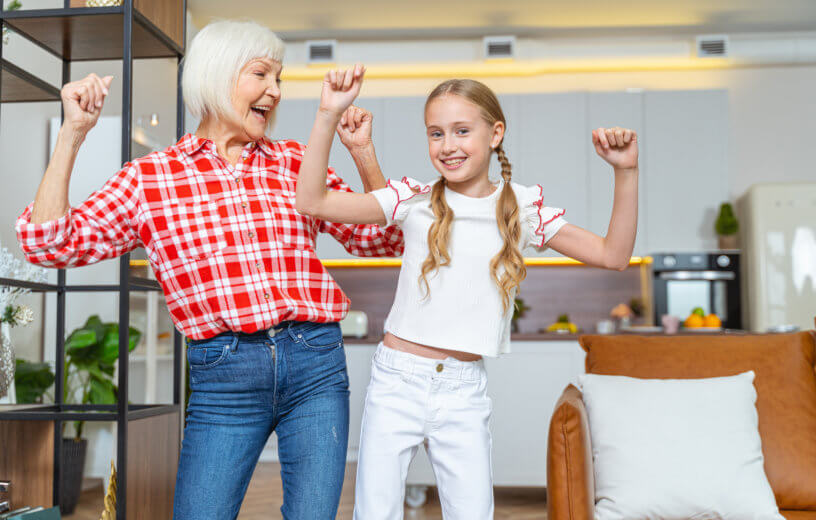HAIFA, Israel — Social distancing is keeping many senior citizens trapped inside this year. Sadly, the coronavirus quarantine prevents many people from seeing their older relatives in person for months. When that isolation ends, however, a new study says there’s one thing every grandchild should do — take grandma dancing!
The study, published in Frontiers in Psychology, found that dance therapy can improve a senior’s fitness and their emotional state. Sixteen dance movement therapists joined their grandmothers for three free-form sessions in their homes. Researchers say dancing not only improved seniors’ moods, but also affected the attitudes of the younger generation.
Dr. Einat Shuper Engelhard from the University of Haifa says the granddaughters in the study revealed a shifting perspective on aging after the classes. The 16 therapists say dancing with their own grandparent allowed them to come to terms with their loved one’s mortality.
For the 16 grandmothers, Shuper Engelhard says the classes helped them form stronger bonds with their grandchildren. The study is hoping to find low-cost ways of countering depressed mood and limited mobility in the world’s growing senior community.
“The increase of the proportion of elderly in the population, along with the increase in the age group of adult grandchildren necessitates creativity and innovation in providing diverse resources and support,” explains Shuper Engelhard in a statement.
Researchers chose dance as their low-cost option because of its ability to improve muscle strength, balance, endurance, and reduce anxiety and depression. Researchers believe dance therapy for seniors can also aid in preventing dementia.
Although physical activity is important for aging adults, Shuper Engelhard adds that the personal touch of interacting with your own relatives is the key to success. Researchers report the grandmothers were uplifted to dance with their granddaughters “even when the body was fatigued and weak.”
“This emphasizes the significance of the close and familiar relationship as a means to promote new experiences (which can occasionally seem impossible) for the older person,” she notes.
Shuper Engelhard hopes to expand the study to include subjects who aren’t professional dance movement therapists. Whether you’re a pro or not, the study believes dancing can be a simple and positive way to get back in touch with our loved ones in the post-coronavirus world.
